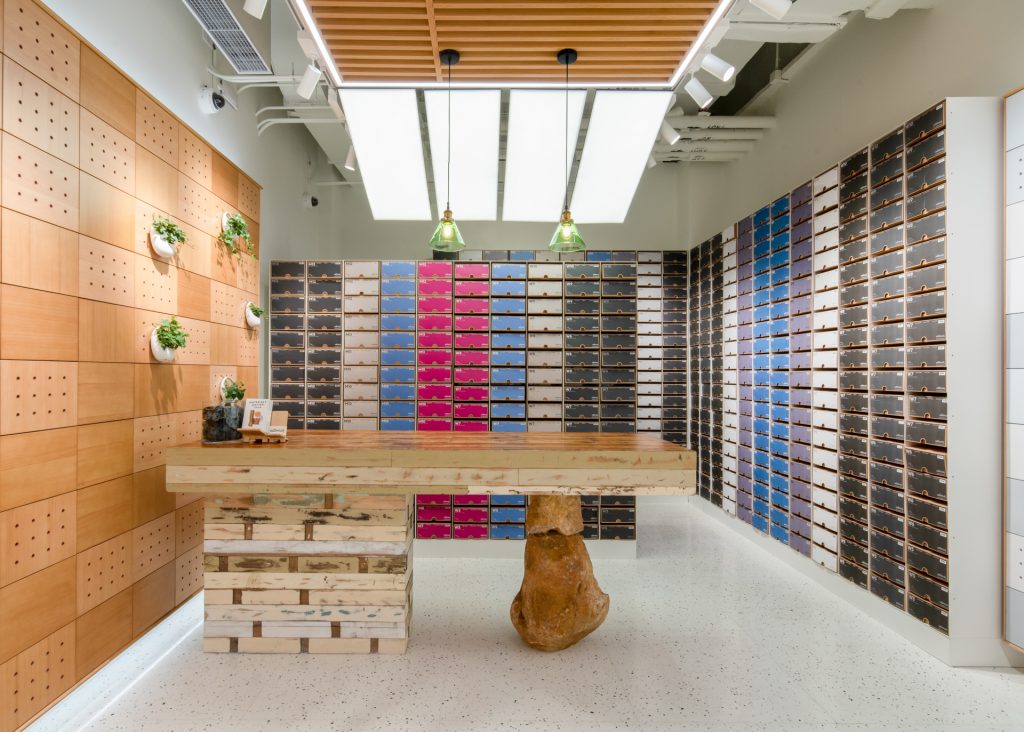


Covid-19 may be challenging brands and retailers across the world but those that have invested in building out digital capabilities are continuing to generate sales and engage with customers at a time when commerce has otherwise ground to a near-complete halt.
Digital savviness will remain crucial as retailers and brands adapt to consumer preferences shaped and shifted by the pandemic. In a global survey by McKinsey in April, consumers said they would “shop less frequently in physical stores for items other than grocery,” with many expecting to spend more online.
As such, brands equipped with online capabilities and strategies will be best positioned to weather and recover from the current crisis. From digitally native brands to global fashion houses, below are examples of how companies have tapped into technologies to outlast the outbreak.
Online-Offline Integration
Since launching its store on Alibaba’s B2C e-commerce platform Tmall last year, sustainable footwear brand Allbirds has been operating with a New Retail approach that seamlessly blends together offline and online sales. This integrated operational infrastructure proved to be a lifeline for the brand during the coronavirus pandemic.
When Covid-19 disrupted offline traffic and activities, Allbirds was able to use staff from brick-and-mortar stores to fulfill online orders. This swift offline-to-online pivot happened because the brand’s e-commerce and physical stores had unified inventory and logistics operations. As a result, the brand never saw an interruption in meeting consumer demand.



“We were very determined from day one to build really strong omnichannel capabilities,” said Erick Haskell, president of international at Allbirds. “The technical and operational capabilities to do this in-store fulfillment that we built to serve consumers during normal times ended up being really useful in this crisis to continue to serve consumers.”
Allbirds also took the pandemic as an opportunity to innovate with new digital tools. The brand launched a feature that enabled Tmall shoppers to connect with store associates via video chat so they could ask questions and see product displays as if they were at a physical store. It has been a popular feature with customers and the brand is now exploring ways to preserve it even after Covid-19.
Leveraging Consumer Insights
The crisis has also shown, perhaps more than ever, the importance of brands knowing their customers.
Michigan-based floorcare company Bissell, for example, has benefited from leveraging consumer insights to make informed business decisions. When the company launched on Tmall, information from the e-commerce platform’s analytics services helped the brand to target consumers based on search interests and related shopping behaviors as opposed to the more conventional age-and-gender approach. The robust product-recommendation algorithm allowed the brand to retain sales even in out-of-stock situations by recommending alternative products.
Such insights have brought great success to Bissell in China: During last year’s 11.11 Global Shopping Festival, the company was able to double its sales in just 12 hours from the year before.
Tmall’s consumer insights continued to provide direction for the company even during the outbreak. The brand saw, for example, that Chinese consumers were more willing to invest in formula-based cleaning solutions and steam cleaners since they were perceived as effective disinfecting tools. Armed with such intel, Bissell hosted online sessions on Taobao Live to demonstrate how to use these products. As a result, sales of its top-selling steam mop increased 500% year-over-year in the first quarter of 2020. Overall first-quarter business grew 14% after recovering from a dip in January.
Canadian brand Viva Naturals is another example of a company that used an insight-driven approach to tackle the pandemic. At the height of the coronavirus outbreak in China, the healthy-lifestyle brand saw a growing focus on wellness and also spotted a knowledge gap among Chinese consumers in navigating different health supplements. The brand launched content-marketing campaigns to target different health interests and needs across Alibaba’s marketing channels. These included more than 40 blog posts and livestreaming sessions on everything from weight-management tips for young consumers to ways to boost vitality and maintain cardiovascular health for senior shoppers.
From the targeted campaigns, the brand saw a quick rebound in sales for its China business in February. On “Queen’s Day,” Tmall’s annual shopping event to celebrate International Women’s Day on March 8, it generated the highest-ever daily sales on the e-commerce platform, beating its 11.11 sales record from the previous year. This surge in sales also helped inform Viva Naturals’ strategy moving forward: The brand is now expediting a new line of immunity-support supplements based on consumer demand
Digital Events and Livestreaming
With social-distancing putting traditional avenues of consumer engagement on hold, brands have increasingly turned to livestreaming, not only to connect but also to create new opportunities with their audiences.
American fashion house Michael Kors recently released a series of livestream sessions and short videos to introduce its new range of customizable handbags. These broadcasts were bolstered by other digital experiences, including a mobile lifestyle quiz that results in personalized handbag recommendations from the brand’s namesake designer.
For Welden, an independent handbag label founded in 2015, livestreaming had always featured in its business strategy in China. It used the online video tool to bolster its brand during Shanghai Fashion Week, an event that had previously been set up for more established businesses that have more on-the-ground resources. When the event moved entirely online this season due to the coronavirus, Welden participated with a virtual runway show featuring its latest collection, which included trendy leather masks. The brand is now considering a new mask collection after receiving positive feedback from audiences during the livestream.
“Covid-19 disrupted the original rules of fashion. The first digital Shanghai Fashion Week created an opportunity for us to bring the show directly from a Shanghai store to a broader consumer audience that want to see newness, innovation and color. The Shanghai Fashion Show experience gave us more confidence to explore the Chinese market in the future,” said Welden founder Sandy Friesen.



With the success of Shanghai Fashion Week – the event’s streams totaled over 11 million views and helped generate more than RMB20 million ($2.82 million) in gross merchandise volume – and the announcement that events such as London Fashion Week are also going online, digital events are set to become a new norm for the industry. Brands embracing this shift are also more likely than not to fare well post-virus.
The pandemic has impacted retail business worldwide but also presented new opportunities and a sense of urgency for brands to build up their digital capabilities. Those prioritizing their digital transformation will be nimbler and better-equipped for success as the world emerges from the impact of a once-in-a-lifetime pandemic.
Sign up for our newsletter to receive the latest Alibaba updates in your inbox every week.





